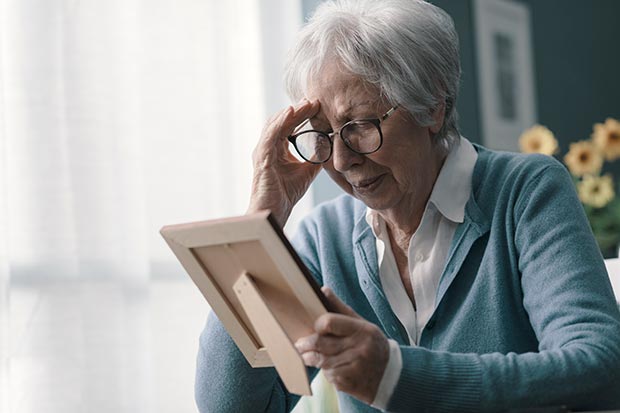Each person’s journey is unique
The response to grief
As each person’s journey is unique so is the experience of grief and loss. I provide grief and bereavement care and support needed at the end of life, as well as afterwards for your family or significant others including children.
Grief is a natural part of life, and your grief experience is as unique as the rest of you. While many of us may grieve the loss of home, country, the ending of a relationship, physical abilities, employment, status in the community, trust, and significant roles in our lives, we are probably most familiar with, and most affected by the death of someone we love, including our beloved pets.
Death related loss is called bereavement, grief is the internal response we experience, and mourning is the expression of sorrow that can be observed by others. The passionate intensity of grief associated with the death of someone we love is unfamiliar to many people, and because of its unfamiliarity, may initially concern us and those who care about us.
Most people think of grief as something that happens after a loved one’s death. But grieving can also occur before death. This experience is known as anticipatory grief because it occurs in anticipation of death or other types of loss, such as the loss of abilities or independence. Anticipatory grief can be experienced by loved ones, as well as the by the person who is ill or dying.
For the person who is dying, anticipatory grief can help them focus on what is important to them, and address any unresolved issues. It can help them find meaning, achieve closure, and feel at peace. For family members, anticipatory grief can also provide an opportunity for them to reconcile difference and attain closure. For the person dying and for their loved ones it presents as a chance to say goodbye.
The grief response affects every part of our being including mind, body and spirit. Cognitively we may find it difficult to concentrate or to retain information, we may find ourselves daydreaming, going over and over recent events, or memories from the past. We may experience vivid dreams or nightmares, memory issues, or engage in avoidant behaviour to numb or avoid pain. We may feel as though we are trying to function in a thick dense fog which is a protective response from the brain.
Our bodies are working overtime to keep us afloat, especially in the early days post loss. We may experience physical symptoms such as shortness of breath, palpitations, burning or butterflies in the stomach, difficulty sleeping, loss of appetite and a feeling of extreme tiredness or exhaustion. We may be hypersensitive to sound, light and touch, and may experience decreased tolerance of many things.
Emotionally we may experience a whole range of feelings including anger, sadness, guilt, hopelessness, anxiety, magnified fear for self or others, numb or drained. Our emotions may feel intense and conflicting which can be overwhelming. The first time we smile, or laugh may be followed by tears. All these emotions are normal and part of grief.
The effects of grief can impact our social habits in a number of ways. We may have less energy to socialise with others, feel overwhelmed or self-conscious in larger circles or within our community. When a loved one dies, this often becomes the focal point of our lives (at least for a time) and the realisation that the world keeps on turning can feel extremely jarring.
Brain fog, exhaustion and the intensity of grief may affect the ability to engage in small talk about everyday matters. We may withdraw or isolate from others, or find comfort in limiting social life to the inner circle of friends who are supportive and know us well. Sometimes grief can cause a sudden shift in relationships and to question the meaning of life.
All these symptoms and many others are like those experienced by people who are depressed and because of that, are sometimes misdiagnosed. Although feelings and behaviour may seem similar, it is important to remind ourselves that grief is really a passionate response to a genuine feeling of emptiness because we have lost tangible contact with someone significant in our lives.
As each person’s journey is unique so is the experience of grief and loss. There is no set timeframe for healing from the loss of a loved one, however the intensity of grief we feel does diminish over time. We learn to grow around our grief, and it becomes lighter to carry.
SUPPORT FOR THE WHOLE FAMILY
Need help managing grief and loss?
It is common to need help or assistance, and there is absolutely no shame in asking for support. Talk therapy, help with daily chores or commitments, as well as using some helpful strategies to manage how you are feeling can be valuable.
Companionship and Guidance
How can an End of Life Doula help?
- Regular contact via online/phone or in person companionship and support depending on your needs. Having someone to talk to, who will listen with the intention of holding space can be comforting and of reassurance. This may at end of life as well as afterwards for your family or significant others.
- Creating a space within your home that supports rest and wellness. Sharing simple meditation practices, gentle movement and aromatherapy may be beneficial for mind, body and spirit.
- Practical ideas and resources to support children and teenagers to express their feelings and needs.
- Referral to counselling or psychology services for professional counselling and support.
- Assistance with organising practical supports such as shopping, gardening, child minding, transport needs and appointments.
- Accompanying you to appointments to take notes and support to communicate with medical, legal or other professionals.
- Support to organise and complete necessary paperwork with a Solicitor for Probate such as Bank Accounts, Superannuation, and Investments.
- Support to organise, save, distribute or store your loved one’s belongings when you are ready.
- Support to create legacy items or special keepsakes. This may include creating photo memory books, slideshows, recordings of stories and family history, memorial jewellery or any other wonderful ideas you may have.
- Support to access funded services and support in your home if eligible (through NDIS or Aged Care). These may include personal care, domestic assistance, social support and transport services.
- Support to plan for and transition into respite care, or residential nursing care due a change in circumstance, wellness or death of your partner/carer.


